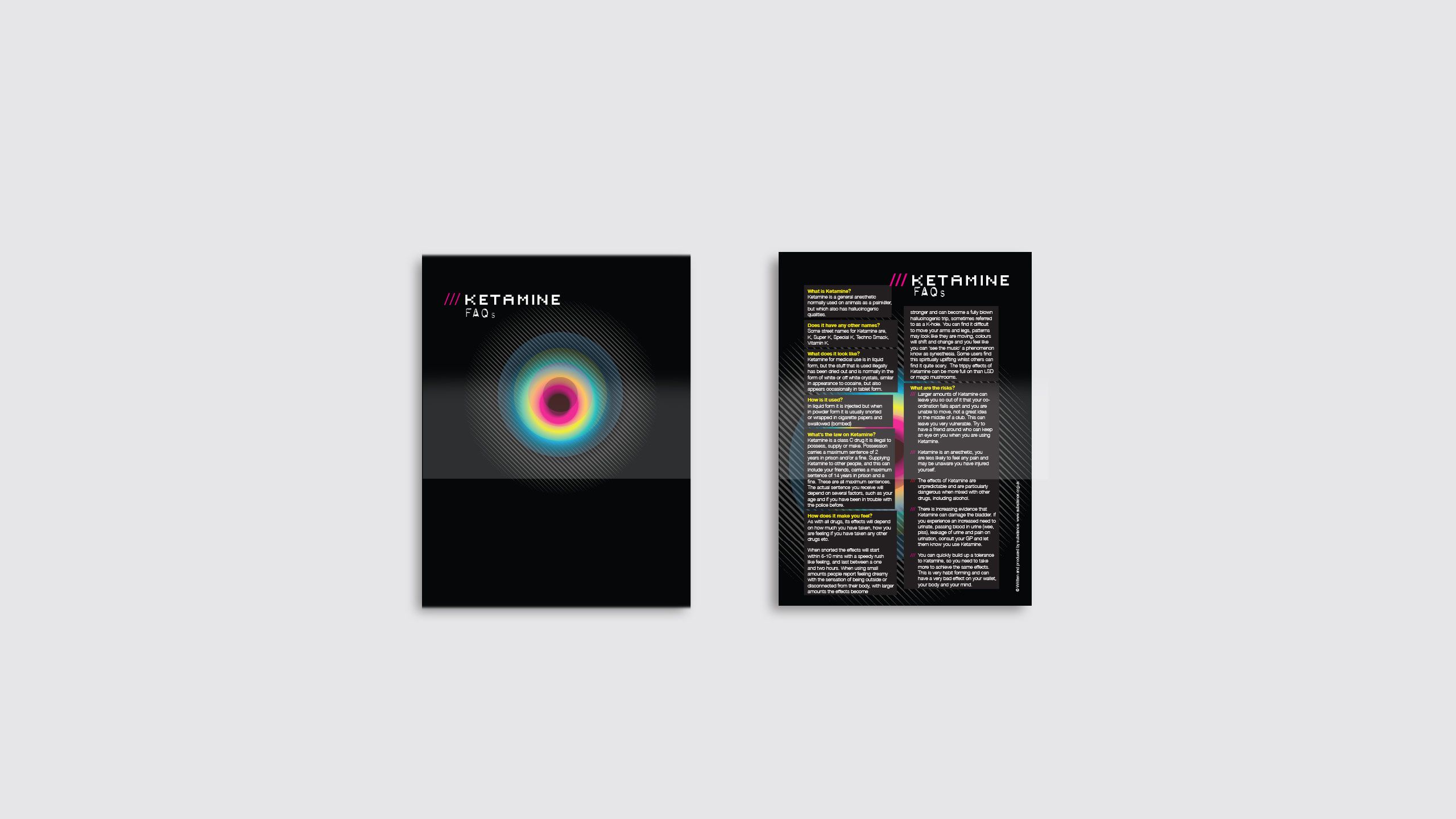What is ketamine?
Ketamine is a general anaesthetic normally used on animals as a painkiller, but which also has hallucinogenic qualities.
Does it have any other names?
Common street names for ketamine include ‘K’ and ‘Ket’, but you might know it as something else depending on where you live.
What does it look like?
Medical-use ketamine comes in liquid form, but the stuff that’s used illegally has been dried out and typically comes as white or off-white powder. In this form, it can look a bit like cocaine. Occasionally, you can get it as a tablet.
How is it used?
As a liquid (usually for medical use), it’s injected. The powder is snorted or wrapped in cigarette papers and swallowed (bombed).
What’s the law on Ketamine?
In the UK, ketamine is a Class B drug. A sentence for possession comes with a maximum of five years in prison, an unlimited fine, or both. Supply or production of the drug can result in a maximum of 14 years in prison, an unlimited fine, or both. However, local police forces will have their own approach to dealing with personal possession. Medical use is legal with a prescription.
How does it make you feel?
As with all drugs, its effects depend on how much you’ve taken, how you’re feeling at the time, if you’ve taken any other drugs, etc.
When snorted, the effects will start within five to ten minutes with a speedy rush-like feeling, and last between one and two hours. With small amounts, people report feeling dreamy, as if they’re having an out-of-body experience. With larger amounts, the effects become stronger and can turn into a full-blown hallucinogenic trip, sometimes known as a K-hole. You might find it difficult to move your arms and legs, patterns may look like they’re moving, colours might shift and change and you might have a synesthetic experience where you feel like you ‘see’ music. Some users feel spiritually uplifted, others find it quite scary. Ketamine’s trippy effects can be more full-on than LSD or magic mushrooms.
What are the risks?
- Larger amounts of ketamine can leave you so out of it that your coordination goes and you can’t move. That’s not a good way to be in the middle of a club as it makes you vulnerable. Bring a friend along who can keep an eye on you when you’re using ketamine.
- Ketamine is an anesthetic, which means you’re less likely to feel any pain and may not know if you’ve injured yourself.
- The effects of ketamine are unpredictable and are particularly dangerous when mixed with other drugs, including alcohol.
- There’s increasing evidence that ketamine can damage the bladder. If you experience an increased need to urinate, find you’re passing blood in your urine (wee, piss), are leaking urine or are in pain when you urinate, consult your GP and let them know you use ketamine.
- You can quickly build up a tolerance to ketamine, which means you need to take more to get the same effects. That makes it very habit-forming and can have a very bad effect on your wallet, body and mind.













